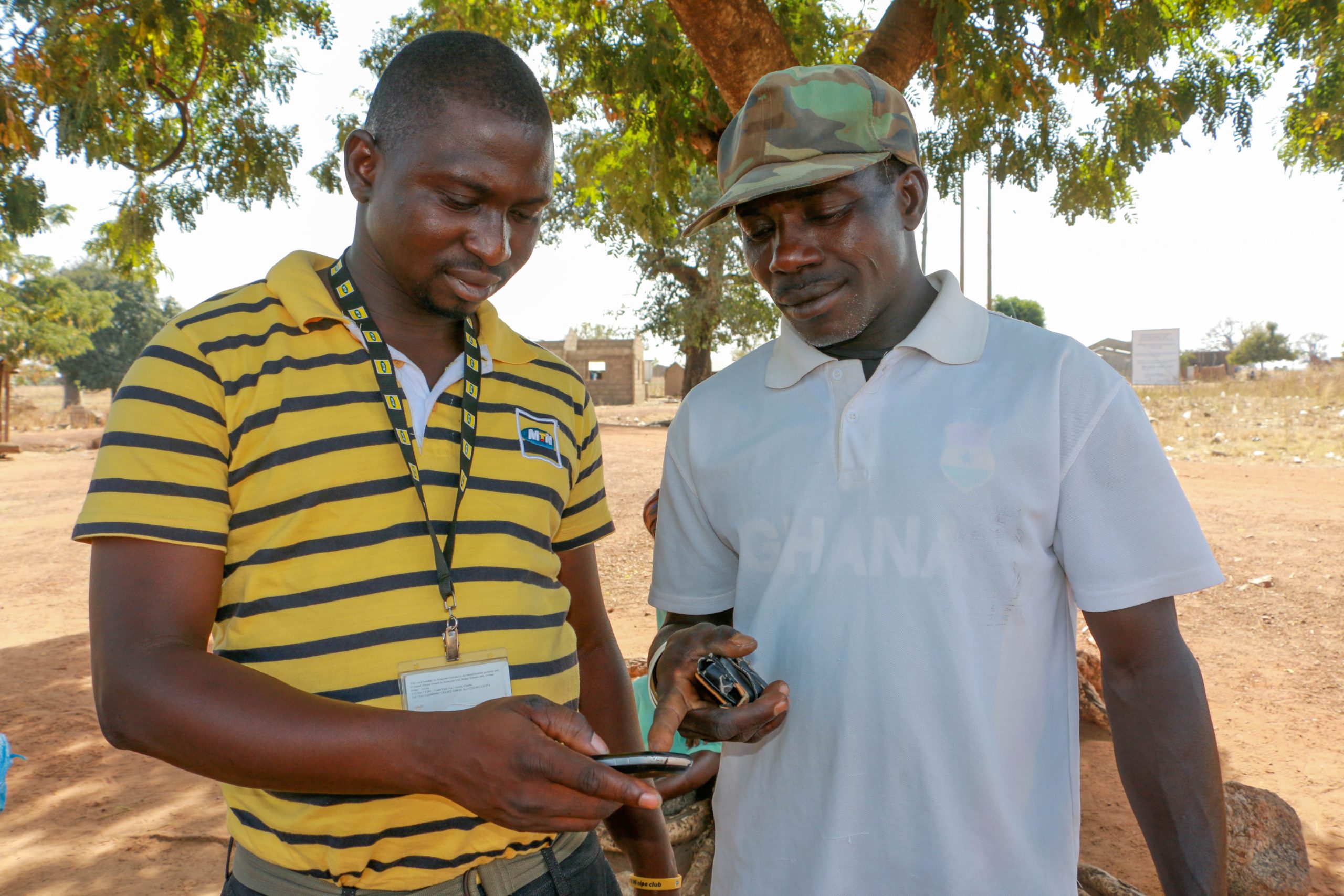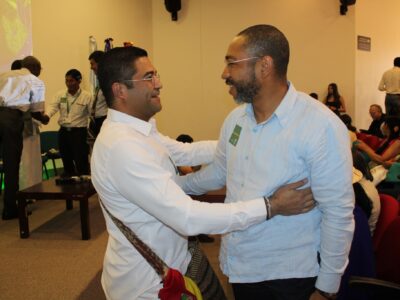
Globe-trotting international development professionals know mobile phones have become common tools in the countries where we work, in bustling metropolises as well as remote villages. Market actors and market systems development implementers like ACDI/VOCA are tapping these and other Information Communication Technologies (ICTs) to improve market outcomes.
I discovered many instances of ICT applications during my recent research in Ghana, Burkina Faso, and Nigeria for a USAID LEO Project report, on the effects of sanitary and phytosanitary measures on maize and livestock trade. At the Achaiman livestock market on the outskirts of coastal Accra, traders reported exchanging frequent daily text messages and calls with importers at the border town of Paga, in neighboring Burkina Faso. These communications included valuable market information, such as the latest prices for goats and cattle that helped them plan purchases and negotiate sale prices. I was struck by the expanding variety of ways that market actors can use mobile phones as market development tools, including geo-locating shipments, enacting mobile payments, and assessing the risk of bribes along trade routes. Who envisioned that mobile phones would assume such a big role in boosting trade and smallholder-inclusive market system development?
At ACDI/VOCA, we work to understand and harness ICT’s ever-evolving potential to enhance our market systems efforts, in ways that are appropriate for the context. In Ghana, we partnered with a local company, Esoko, to use SMS and voice messages to disseminate price, weather, and agronomic information on maize, rice, and soybeans to over 22,000 individuals last year. This information helped producers apply improved agronomic practices to boost output, align cropping activities with changing weather, and improve price negotiations. We also use tablets, apps, and small projectors to deliver extension services, and register farmers to collect farm data and track them online to ensure they receive the right help from the project.
Obviously, mobile phones and tablets are not the ideal tool for all locations or populations. In remote rural areas, cell service may be cost-prohibitive, networks may be weak or non-existent, and much of the population, especially women, may lack literacy skills to read SMS. Thus, we supplement “high-tech” with “low-tech” devices such as radios or voice messaging, depending on the specific context. We collaborated with Ghana’s Ministry of Food and Agriculture to sensitize farmers on combatting Fall Armyworm infestation via local radio. We found this hybrid approach—high-tech and low tech—to be the most effective and context-appropriate way to achieve successful and inclusive market systems development.
ICTs continue to evolve, diversify and make significant in-roads in development. At ACDI/VOCA we’re excited by the opportunities these technologies present to us and those we serve in our work, and the greater potential that lies ahead with continued innovation and development.
How does your organization approach ICT usage in its projects? Please add your comments or questions below.
Comments







